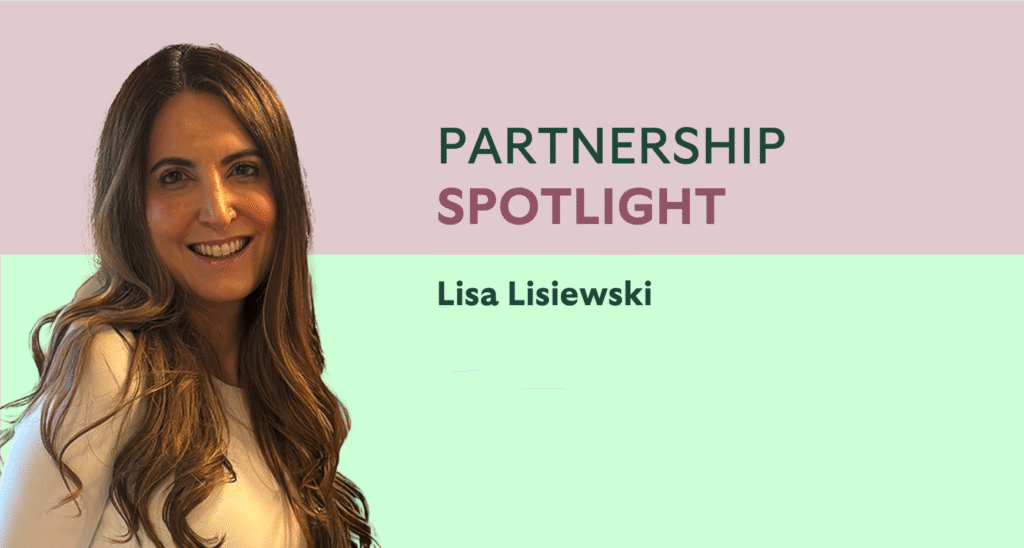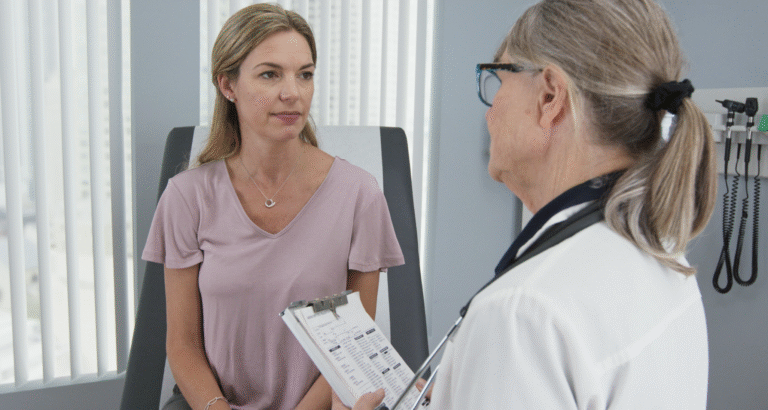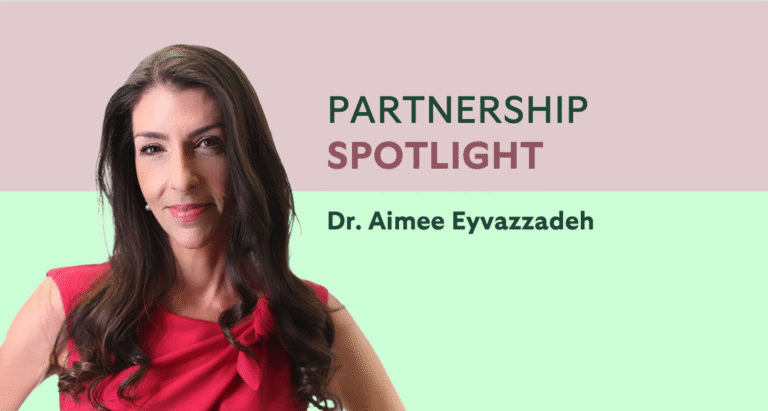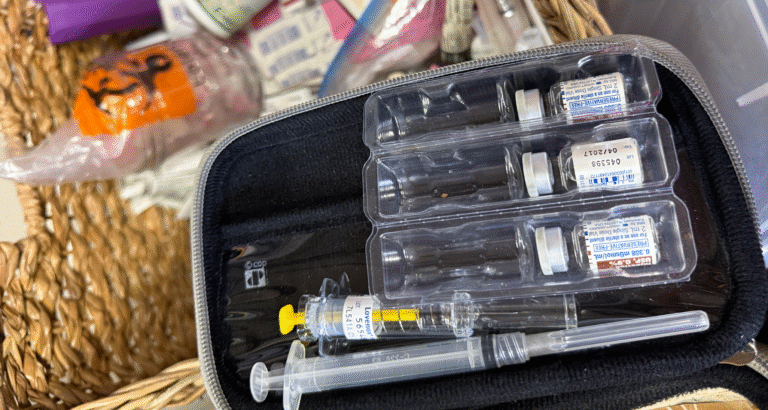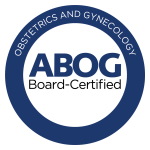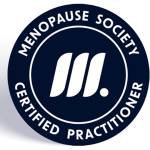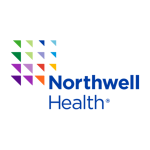Lisa Answers Your Top Questions About Nutrition and Endo
At ESSE Care, we believe healing endometriosis means treating the entire body—not just isolated symptoms. Nutrition plays a central role in this process, influencing everything from inflammation and hormone balance to surgical recovery and energy.
But for many patients, food has become another source of confusion. Maybe you’ve tried elimination diets. Cut out gluten, dairy, or sugar. Taken supplements that didn’t move the needle. Or maybe you’re just tired of being told to “just eat clean” without real guidance.
We hear this every day. That’s why we turn to trusted partners like Lisa Lisiewski, a seasoned functional nutritionist—and endometriosis patient herself—who helps patients understand what their body is asking for.
Lisa brings more than 25 years of clinical experience and a deeply personal understanding of this disease. In our Whole-Body Care for Endometriosis webinar, she joined Dr. Karli Provost Goldstein to answer patient questions on gut health, inflammation, hormone support, and what sustainable nutrition actually looks like for people living with endo.
About Lisa Lisiewski
Lisa isn’t just a provider—she’s walked this path herself. Her work is shaped by personal experience and a strong clinical foundation:
- 25+ years of experience as a registered dietitian and functional nutritionist
- Stage IV endometriosis patient, including bowel resection surgery
- Specializes in GI health, inflammation, hormone support, and post-surgical nutrition
- Uses a root-cause functional medicine approach—no guesswork, no fads
Why Nutrition Is a Core Piece of Endometriosis Care
Endometriosis is a chronic, systemic inflammatory condition. And nutrition is one of the few tools patients can use every day to lower that inflammation and support the healing process.
But nutrition in endo care isn’t about cutting out foods and hoping for the best. It’s about understanding the why behind symptoms, identifying imbalances in the gut, hormones, or immune system, and using food as a therapeutic tool—not a source of stress.
In our Whole-Body Care webinar, Lisa shared how functional nutrition can:
- Lower systemic inflammation and reduce flares
- Support estrogen metabolism and hormone regulation
- Address gut imbalances like SIBO and dysbiosis
- Improve post-op healing and reduce risks
- Identify food sensitivities without rigid restriction
- Restore energy, immunity, and micronutrient status
What Our Patients Are Wondering—Lisa Answers Your Questions
During the webinar and in her everyday work, Lisa gets asked some of the same thoughtful, personal questions again and again. Here, she shares her real answers—so you can better understand how nutrition might support your own healing.
Here, Lisa shares her answers—so you can feel clear, empowered, and supported in using nutrition as part of your endometriosis care.
Is there one diet that works for everyone with endo?
Lisa’s Answer: No, and that’s the beauty of it. I don’t believe in a “one-size-fits-all” endo diet. I work with each patient’s symptoms, food preferences, labs, medical diagnosis and lifestyle to design a plan that’s not just therapeutic—but doable. It’s about what your body needs, not a universal food list. Typically, I do not like to label diets but most endo patients do well with a minimally processed, anti-inflammatory or a combination of paleo / keto diet variations based on their biochemical presentation.
What’s your starting point when creating a nutrition plan?
Lisa’s Answer: I always start with the gut and inflammation. If your gut isn’t functioning well, you’re not absorbing nutrients properly, and inflammation will continue to drive symptoms.
From there, I layer in or examine other aspects such as hormones, detoxification pathways, and micronutrient repletion. It’s really critical to do a thorough nutritional evaluation to assess all factors that will help guide us in developing an effective and comprehensive nutritional regimen.
Today, my nutritional services are largely covered by insurance. I am able to see patients as frequently as on a weekly basis, often with little to no co-payment. This allows me to truly understand each client’s needs so they can achieve optimal health.
Furthermore, because of my extensive clinical experience with a myriad of complex disease states—and having been an endo patient myself—I am uniquely positioned to help clients navigate our healthcare system and serve as a support to their doctors.
Registered Dietitians—especially those with a functional and holistic background—are proving to be valuable members of every client’s healthcare team.
How do you support patients with SIBO or digestive issues?
Lisa’s Answer: I start by evaluating diet, supplement history, symptom patterns, and gut testing as appropriate and available. Then I build a phased plan—this might include gut-specific medical foods, targeted probiotics, gentle antimicrobials, and specific nutrition strategies to calm and restore function.
Do I need to do food sensitivity testing?
Lisa’s Answer: Not always—but when we’re stuck, it can offer insight. I often recommend accessible testing like Check My Body Health to help patients identify not just food triggers, but also preservatives, emulsifiers, and additives that aren’t on typical allergy tests.
What about DIM or other hormone-balancing supplements?
Lisa’s Answer: DIM can be helpful for supporting estrogen metabolism, but it’s not for everyone. I only recommend it when labs show estrogen dominance or poor clearance. We have to be thoughtful—it’s about balancing your system, not just adding supplements. There are multiple estrogen balancing options but we want to review and do a thorough examination of all factors so clients can tailor a plan that will be effective and restore whole body balance.
Can hormone therapy affect digestion or food reactions?
Lisa’s Answer: Yes. Hormonal shifts—like those from HRT, ovary removal, or menopause—can absolutely affect gut motility, immune sensitivity, and how well you absorb nutrients. I adjust nutrition support based on where you are in your hormonal journey.
Why is soy often avoided with endo?
Lisa’s Answer: Soy is a phytoestrogen—it can bind to estrogen receptors and may worsen symptoms in patients who already have estrogen dominance. It’s hidden in a lot of processed foods, so I help patients learn where it shows up and how to reduce it without stress.
What should I eat after bowel surgery?
Lisa’s Answer: Depending on the severity of your bowel surgery—whether it’s a minor repair or a complete resection—we generally start patients on clear liquids and progress to full liquids (i.e., smoothies, pureed soups, etc.), then slowly add back more solid, fibrous foods based on individual tolerance.
Very often, I like to incorporate specific elemental GI formulations that are targeted toward healing the gut lining. These help ensure that both macro- and micronutrient needs are being met during the recovery process.
I generally keep patients on these formulations until full healing is reached or bowel regulation is achieved. This can take as little as a few months or possibly up to a full year, depending on the extent of the bowel surgery.
Once you’re fully healed from surgery, we can then shift our focus to building your long-term nutritional regimen to support your optimal health and well-being.
Can nutrition help prevent recurrence after surgery?
Lisa’s Answer: While we can’t promise prevention, nutrition is a powerful piece of reducing systemic inflammation and fibrosis. I often use digestive and systemic enzymes, along with targeted food strategies, to support healing, reduce adhesions/inflammation, and strengthen immune resilience.
Why Lisa Is a Trusted Partner in Whole-Body Endometriosis Care
Lisa offers far more than a food list—she brings strategy, clinical insight, and deep compassion. Her care is rooted in science but grounded in real life, designed to meet you exactly where you are.
She understands how overwhelming it can be to navigate nutrition when you’re in pain, exhausted, or unsure of what actually works. She’s lived it—and that’s why her approach is never rigid or one-size-fits-all.
Lisa listens deeply, creates personalized, sustainable plans, and walks alongside you as part of your broader care team. At ESSE, she collaborates closely with surgery, hormone, and pelvic floor specialists to support whole-body healing from the inside out.

